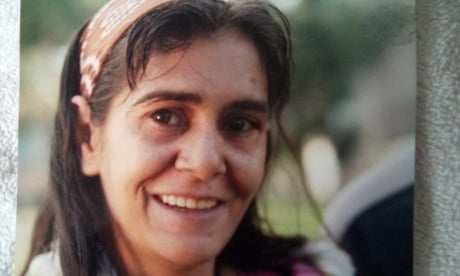- by foxnews
- 10 Mar 2025
Inquest into Aboriginal woman’s death in custody to examine healthcare in Victoria’s prisons
Inquest into Aboriginal woman’s death in custody to examine healthcare in Victoria’s prisons
- by theguardian
- 26 Apr 2022
- in news

An inquest into the death in custody of an Aboriginal woman held in remand over theft-related offences will probe the state's bail laws and healthcare in prisons when it begins on Tuesday.
Veronica Nelson, a Gunditjmara, Dja Dja Wurrung, Wiradjuri and Yorta Yorta woman, was on remand when she was found dead in her cell at the maximum security Dame Phyllis Frost Centre in Melbourne's west on 2 January 2020. She was 37.
Nerita Waight, chief executive of the Victorian Aboriginal Legal Service, said Nelson's death was a tragedy for her family and friends.
Waight said the state's Indigenous communities have "seen far too much senseless loss of life in the Victorian justice system".
"Veronica should still be alive today and we hope to get some answers that help us understand why she is not and ensure it never happens again," she said.
An autopsy found Nelson suffered complications from Wilkie's syndrome, a rare condition that is characterised by abdominal pain, nausea and vomiting.
She had been arrested three days earlier in the Melbourne CBD and denied bail after police discovered she was wanted for questioning over shoplifting.
At a 2020 directions hearing, the Victorian coroner's court heard Nelson had cried for help multiple times in the three hours before her death. During that time, prison and nursing staff did not check on Nelson physically, but communicated with her through an intercom system and a door flap, the court was told.
A prison nurse gave Nelson Panadol after she reported leg camps and the anti-nausea drug Maxolon.
The court also heard Nelson had been experiencing heroin withdrawals.
The Victorian Aboriginal Legal Service will represent Nelson's partner of 22 years, Percy Lovett, at the inquest. Lovett has previously described Nelson as a "strong woman" and someone who would always help others on the street, and said he wanted the inquest to ensure it was "easier for the next woman who get locked up".
Nelson's mother, Donna Nelson, has remembered her daughter as a "warrior" with a "fighting spirit" who was deeply connected to her Aboriginal culture, and was like a "second mother" to her two brothers, Duane and Russell.
Nelson had been arrested on Spencer Street in Melbourne on 30 December 2019, on theft charges and an outstanding warrant.
She appeared in court later that day without legal representation and was refused bail, with a court hearing scheduled to take place two weeks later.
She spent a night at the Dame Phyllis Frost Centre's medical unit before being moved to a transition area for new arrivals.
After the Bourke Street killings in 2017, the Andrews government tightened Victoria's bail laws. Under the reform - which has resulted in a significant increase in the state's remand population and delays for court hearings - the person charged with an offence must prove they meet "exceptional circumstances" or have "compelling reasons" to be released on bail.
Thalia Anthony, a senior law lecturer at the University of Technology Sydney, said the legislative changes had shifted the focus towards "an assumption against bail".
"Systemically, the bail legislation and decision making has always worked against Aboriginal people. But when you tighten those laws and make it harder to get bail, then it's going to impact on Aboriginal people and Aboriginal women more harshly and that bears out in the statistics," Anthony told Guardian Australia.
"The bail system, even at its best, is discriminatory because it doesn't account for factors that would systemically discriminate against Aboriginal people. For example, there's a higher chance of getting bail if you're employed and have secure housing, and don't move around."
Last month, a wide-ranging inquiry into Victoria's criminal justice system recommended the state review its bail laws, with the changes leading to a rise in the number of people on remand. Women are disproportionately affected.
It found almost half of all women in prison were on remand - an increase from 22% in 2010. A larger proportion of women had been held on remand in recent years than men, with this figure even higher for Aboriginal women.
The Sentencing Advisory Council found the imprisonment rate for Aboriginal and Torres Strait Islander people almost doubled between 2010 and 2020, from 971.8 to 1,848 per 100,000 adults.
The inquest will run until 27 May and will examine the circumstances and cause of Nelson's death, including how she came to be in custody, the medical treatment she was provided and systemic issues in the state's remand system.
- by foxnews
- descember 09, 2016
Ancient structure used for cult 'rituals' discovered by archaeologists
A Neolithic Timber Circle was discovered by archeologists in Denmark resembling the historical landmark Stonehenge in the U.K. It is open to be viewed by the public.
read more


